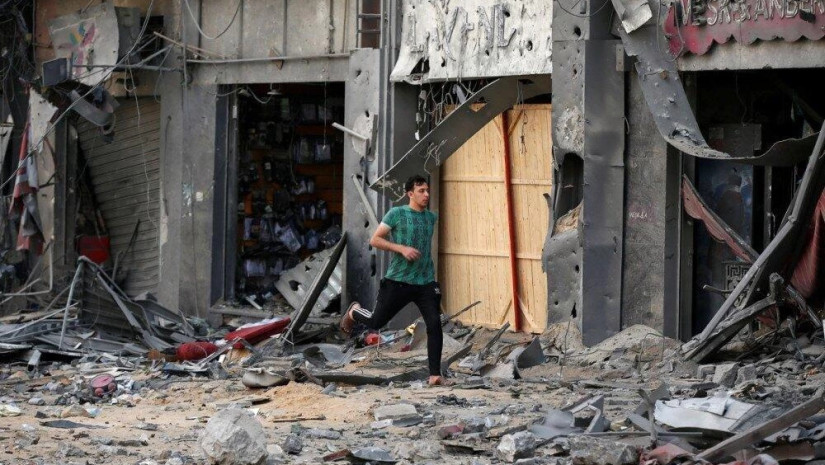The Gaza war caused $570 million in structural and economic damages and recovery could cause cost upwards of $485 million during the next two years, the World Bank said in a preliminary report it released on Tuesday.
"With this assessment, we hope to mobilize donors’ support to help restore dignified living conditions and livelihoods in Gaza and lead the way to recovery,” said Kanthan Shankar, World Bank country director for the West Bank and Gaza, The Jerusalem Post reports.
The bank's Rapid Damage and Needs Assessment (RDNA) report was presented to the Ad Hoc Liaison Committee, which met virtually on Tuesday to discuss donor funding for the Palestinians. The 15-member body includes representation from Israel, the Palestinian Authority, the United Nations and the United States and typically meets only twice a year in the spring and fall.
The report found that the war cost Gaza $380 million in physical damage and $190 million in economic losses.
It suggested that $485 million be spent on Gaza recovery in the next 24 months.
The World Bank's damage assessment of Gaza is the most extensive report to be published on the impact of the 11-day IDF-Hamas war, known as Guardian of the Walls, on the small enclave. It provided a wide-ranging assessment of the damage caused to homes, road and infrastructure, as well as to medical facilities and schools.
Israel has spoken of the terrorist targets it leveled with its 1,500 retaliatory airstrikes on Gaza and of the damage to Israel by the 4,300 rockets Hamas launched against it.
This report, done in conjunction with the UN and the European Union, inventoried the civilian damage and the harm caused to the impoverished enclave where unemployment was at 48% and 57% of the population lived below the poverty line prior to the war.
The 2.1 million Palestinians living in Gaza were already in a vulnerable economic situation when the COVID-19 pandemic broke out and their situation only worsened with the enclaves GDP contracting by 12.3 percent according to the World Bank.
Prior to the war, the bank had projected that the Gaza GDP would grow by 2.5% this year, instead it may contract by 0.3%, Shankar said. Unemployment is now at 50% and 60% of the population is living below the poverty line, the Bank added.
Its report showed that 4,100 housing units were damaged during the war, of which 1,600 of those homes were totally destroyed and the remaining 2,500 abodes were partially impacted according to the Bank's report. Some 91% of the damaged homes were apartment units.
The report call for $40-60 million for immediate interim housing, including rentals and the start of the repair process which it estimated would take longer than 24 months.
In addition, according to the report seven hospitals, six clinics and one laboratory sustained damage. When it comes to schools, 116 kindergartens were damaged, as were 140 buildings housing public schools. Some 41 schools run by the UN Relief and Works Agency were also harmed by bombings and explosions. An additional 61 UNRWA educational structures were damaged by the sea and tear of providing refuge to some of the 700,000 Palestinians temporarily displaced by the bombings.
UN Special Coordinator for the Middle East Peace Process Tor Wennesland said that everything must expedite the Gaza recovery. “The cessation of hostilities reached last month has largely held but remains fragile. The UN is continuing its diplomatic engagements with all concerned parties to solidify the ceasefire. In the meantime, we are also ensuring that we do everything we can to meet the most urgent needs that would allow Palestinians in Gaza begin the process of recovery as quickly as possible," Wennesland said.
EU Representative Sven Kuhn von Burgsdorff, said "the recovery of Gaza must be backed by a meaningful peace process that will bring security and dignity for all… Gaza’s recovery will depend much on the progress of the political process and a negotiated solution. Palestinian unity and democratic renewal through free and fair elections are as well of crucial importance."












